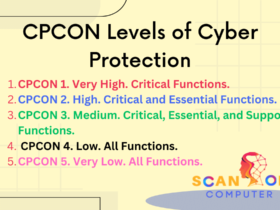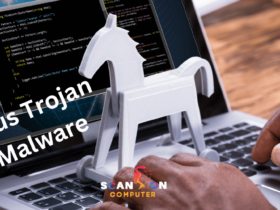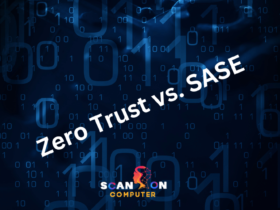External Certificate Authorities (ECA) play an integral part in providing transparent and trusted transactions and communications over the internet.
Verification services verify entities, people and devices by linking a private key with a public key to create digital certificates such as OV, EV or code signing certificates.
Security
Certificate authorities play an essential role in safeguarding customer identities and data by offering certificate services that keep it private, but when these functions go awry the consequences can be disastrous for businesses. That’s why security leaders should take great care when selecting their provider – one with superior security features, customer support capabilities, brand recognition capabilities, cost efficiency, as well as convenient payment terms.
Certificate authorities (CAs) are reliable third-party entities that issue end-entity certificates and oversee their lifecycle, from generation, revocation and expiration. While there are hundreds of public CAs worldwide, only a select few are responsible for most certificates in use online. Each CA follows different processes while all share common goals: namely protecting their infrastructure against hackers while maintaining customer trust.
Trustworthy organizations must pass regular audits and adhere to industry guidelines. Furthermore, they must allocate sufficient resources for infrastructure security as well as maintaining high levels of professionalism while being actively engaged within their industry’s community. Furthermore, they should always be available to address customer enquiries or concerns immediately.
Many organizations rely on external CAs to protect their devices. Since these CAs are typically pre-built and widely trusted, implementation and management are much simpler compared to internal CAs; however, these options also come with their own set of drawbacks.
One of the key risks of using an ECA is its vulnerability to attacks. If an attacker gains access to its private key and forges certificates without authorization from it, they could gain access to private information – something which could have serious repercussions for businesses despite measures taken to reduce risks.
To reduce risk, security leaders must select a reliable certificate authority that adheres to industry standards and practices, consider its reputation and provide 24/7 customer support, before making their choice between an internal CA solution or managed PKI system.
Reliability
Selecting an effective certificate authority (CA) can make or break your business. A reliable CA will help build trust among customers while safeguarding privacy, which is increasingly becoming important online transactions. Security considerations should always be kept top-of-mind when choosing a CA; otherwise fines, lawsuits or even business losses could occur as a result.
Certificate authorities (CAs) are third-party entities that issue digital certificates for public channels, ensuring authenticity for websites or email addresses that use public channels. A reliable CA will have stringent identity verification standards so it can guarantee authenticity of websites or email addresses, especially as hackers attempt to gain entry by masquerading as legitimate sources. Without strict ID verification standards in place, criminals could access your site and steal customer data before sending malicious content directly. If your CA does not prioritize identity verification seriously enough, customers could easily be targeted by criminals with the intention of sending malicious content over public channels – something hackers attempt at doing on an everyday basis.
Certificate authorities offer many different certificates that can be issued, with SSL certificates being the most frequently issued. They create a secure link between a web server and browsers by verifying who owns a website as well as whether or not it contains fraudulent material, while attesting that sensitive data is encrypted properly for added protection.
ECAs have built up an excellent reputation with search engines and are known for their stringent certification process. An ECA must meet the DoD PKI’s strict requirements in order to be approved, which means providing trusted digital certificates that fulfill promises made. They should maintain the same root certificate as DoD PKI Root CA and adhere to DoD PKI Certificate Policy while supporting EV/OV certificates with strong encryption features.
Scalability
Scalability is an essential consideration when developing cloud applications, as scalable apps can handle varying volumes of work and manage peak usage without falling apart, as well as quickly adapting to changing demands – both important aspects that help reduce performance bottlenecks and ensure high availability.
There are various strategies to increase the scalability of an app, including caching and optimizing web requests. When making these changes, however, it’s essential to assess their effect on overall performance as well as to understand users’ goals and motivations so you can identify ways of meeting these needs while prioritizing requirements.
Certificate authorities (CAs) are organizations that issue digital certificates that bind a public encryption key with its owner, verifying their identity. CAs form part of public key infrastructure (PKI), providing secure communications between servers and clients. Organizations can either rely on pre-built external CAs that are trusted by the public, or create their own internal CAs to gain full control over implementation and certificate management.
External CAs can generally be divided into two broad categories, commercial and open source. Commercial CAs offer paid SSL certificates with enhanced levels of validation than their free-use counterparts, such as extended validation for extensive verification of identities as well as multi-domain SSL certificates.
Scalability in PKI depends on its capacity to support increased traffic loads and grow with your business. An organization that fails to account for PKI scalability risks difficulty supporting new devices or managing increased workloads – leading to decreased productivity, customer impact and even non-compliance fines and lost trust from their customer base.
Organizations looking to increase the scalability of their PKI should implement an ECA that supports REST APIs for certificate request and renewal, enabling them to automate and script manual steps within the certificate process. Furthermore, an OCSP responder should be configured so as to validate revocation status and prevent private keys from leaving the firewall.
Cost
If you want to secure your website and build trust with customers, using a reliable Certificate Authority is key. These organizations verify businesses, people and devices online transactions to ensure transparent and safe conduct; without their work we would not enjoy such high levels of online security as today.
Certificate Authorities take various steps to authenticate their customers before issuing SSL certificates, depending on which form of validation a customer requires – from Domain Validation certificates (DV) that validate that a site owner owns its domain to Extended Validation certificates (EV), which verify company identities through various methods like conducting local public database checks or using LEI numbers for organizations.
While it is technically possible to create your own CA and disburse certificates yourself, this option often proves too costly for most companies. Maintaining an internal PKI requires extensive expertise, time, and resources that most organizations don’t possess on-staff. Instead, managed service providers often prove more cost-effective by handling certificate management for them.
The global Certificate Authority business is highly fragmented. Most providers operate within a particular country or region and are subject to its laws, regulations and accreditation schemes; additionally, most issuance and verification processes tend to be similar across most nations, making it hard for an independent CA provider to compete against national/regional providers.
Security and trust on the Internet is a shared responsibility that requires everyone’s participation and uphold. For maximum protection, industry must work in harmony to meet standards and follow best practices. Reputable Certificate Authorities play an essential role in developing industry guidelines while adhering to stringent audit policies as thought leaders in their fields.
As a result, SSL protocols provide top-level protection and help drive industry evolution towards greater security. In fact, due to these efforts, they have become one of the most widely adopted methods of data encryption, with all major browsers and mobile devices supporting this standardized method for web encryption.













